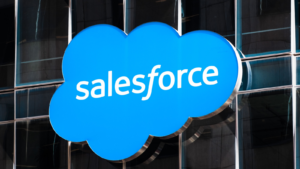
The news of the U.S. government’s allegations has shaken the financial sector. Adobe is at the center of a criticism storm from the Federal Trade Commission (FTC), which claims that the company concealed the cost of canceling its subscription plan. When trying to unsubscribe, Photoshop, Acrobat and Illustrator users faced the need to pay several hundred dollars. The FTC-Adobe lawsuit is currently underway in a federal court in California, putting the company’s reputation at risk, which has been offering similar subscription options since 2012.
Adobe will not give up and will defend the legitimacy of its actions. According to the company’s representatives, the three subscription options met users’ needs for convenient and flexible payment terms. The company is determined to continue pursuing its transparency policy and keep the bar high regarding positive user experience.
The dispute may be resolved in the judicial space in favor of either party. However, the company’s reputation will likely suffer in both cases. Concerned investors are looking for ways to reallocate shares in their portfolios before making a final decision.
Microsoft (MSFT)

Advanced technologies require constant injections of funds to support research, so it’s not a surprise that competitors in this area are companies with big market capitalization. Microsoft (NASDAQ:MSFT) competes with Adobe (NASDAQ:ADBE) in cloud computing, artificial intelligence and creative software solutions. Any legal problems one of these companies faces, such as the FTC-Adobe lawsuit, benefits the other company. Integrating Microsoft’s Azure cloud platform with artificial intelligence tools has pushed Adobe Sensei out of the way and made it a comprehensive cloud services platform. Dynamics 365 competes directly with Adobe Experience Cloud, and the latest integration with Azure services plays into its hands.
In a month, the industry titan made a breakthrough that allowed the stock to rise by 5.3%. The integration of OpenAI technologies plays an important role in this rise. ChatGPT has significantly enhanced the capabilities and accuracy of Microsoft products. Expanded integration between Windows computers and Android smartphones has improved cross-platform compatibility and new users, increasing revenue potential. This aligns with consensus sales forecasts of +14.2% year-on-year and a revenue increase of 13.8% for the next fiscal year.
Salesforce (CRM)

While Adobe is a leader in digital experience and marketing automation software, the FTC-Adobe lawsuit could provide additional opportunities for a company like Salesforce (NASDAQ:CRM), as its cloud-based solutions are key to the customer relationship management market. With a set of cloud applications, the CRM platform can attract customers with solutions for sales, service, marketing and commerce. The addition of Slack and Tableau to the company has concentrated the lion’s share of collaboration and data analysis tools in its hands. In addition, Einstein AI can occupy the niche of automating routine tasks and increasing the productivity of sales and marketing departments.
Salesforce is known among investors for its stable financial performance and growing presence in CRM solutions and cloud services. In the last quarter, the company took advantage of its broad customer base and surpassed the $9.13 billion mark in revenue. This figure exceeded the previous year’s value by 10.7%, which is why earnings per share reached $2.44. Analysts have high expectations for the second quarter, with their estimates pointing to a projected revenue growth of 7.4%.
Oracle (ORCL)

Google Cloud, Adobe Experience Cloud and Amazon Web Services (NASDAQ:GOOG, NASDAQ:GOOGL) are challenging Oracle (NASDAQ:ORCL) to dominate the cloud computing industry. However, the company finds solutions each time, allowing it to continue competing for industry leadership. Amid the FTC-Adobe lawsuit, Oracle’s value is growing as it leverages its partners’ infrastructure to create innovative products. It is expanding in international markets by establishing local data centers. Proactively driving innovation is especially important to thrive in Europe, where other major players are fighting for users. Oracle’s investment plan includes investing more than $1 billion in Spain over the next decade.
With the creation of the third Cloud Region in Madrid, the company will continue implementing the country’s broader digital transformation goals. This is expected to be facilitated by its cooperation with Telefonica España, among others. More than 100 cloud services and a focus on industry-specific solutions (financial services) demonstrate Oracle’s adaptability to modern conditions. Revenue for the fourth quarter of last year amounted to $14.29 billion, confirming the chosen strategy’s correctness. A 12% increase in revenues from cloud services and license support led to % overall growth of 6%.
On the date of publication, Julia Magas did not hold (either directly or indirectly) any positions in the securities mentioned in this article. The opinions expressed in this article are those of the writer, subject to the InvestorPlace.com Publishing Guidelines.






